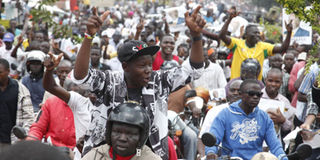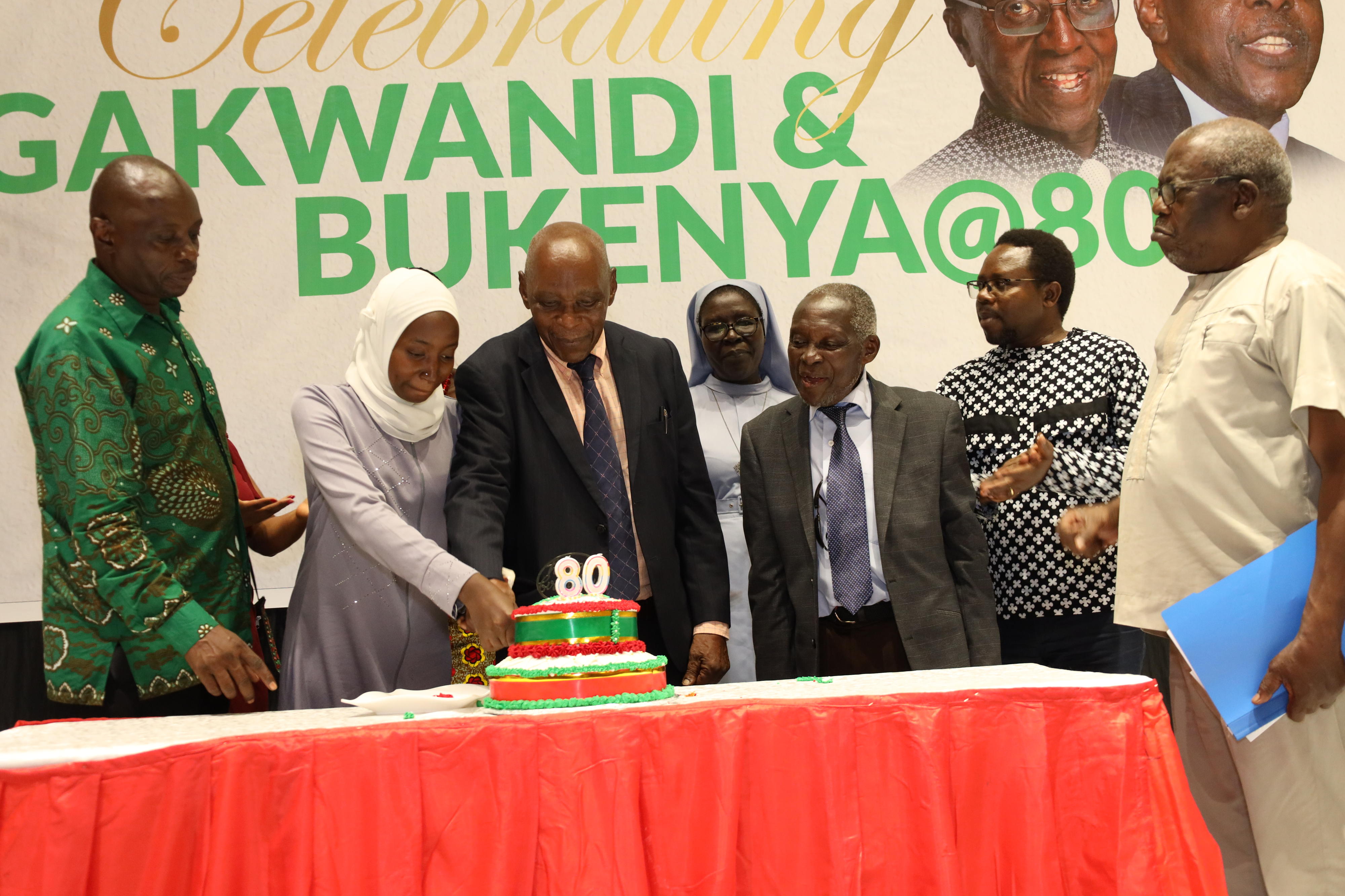Will voters defy downward trend in 2016 election?

With just four days left to the polls, what will weigh on the minds of the eight presidential candidates is whether the 15.2 million eligible voters will turn up for the ballot. PHOTO BY RACHEL MABALA
With just four days left to the polls, what will weigh on the minds of the eight presidential candidates is whether the 15,277,196 eligible voters will turn up for the ballot or will vote with their feet as has been the growing trend with the past four general elections.
Voter turn-out has been plunging since the 1996 elections – conducted 10 years after President Museveni’s National Resistance Army (NRA) shot their way to Kampala protesting rigging in the 1980 elections.
With the euphoria that came with the 1996 elections, it is understandable that Ugandans come out in hordes to participate, with the election recording an all-time turnout at 72 per cent.
But as ecstasy that greeted the relative socio-political-economic stability ushered in by the NRM fizzled out – with a citizenry bogged down by intrigue in top government ranks, corruption and a flawed democratisation process – the numbers of those willing to take part in elections also dropped.
In 2001, even with the freshness of Dr Kizza Besigye’s surprise candidature, voter turnout fell to 70 per cent in an election marred by violence and voter bribery.
In the 2006 polls, despite the excitement that was prompted by the unexpected return from exile and jailing of Dr Besigye tied with removal of term limits to allow Mr Museveni endless shots at the presidency that triggered a fallout in the NRM, voter turnout still fell to 69 per cent.
With frustrations over the integrity of the elections increasingly coming under scrutiny as recorded by the 2001 and 2006 Supreme Court rulings, voter turnout in the 2011 polls tumbled to a record low at 59 per cent.
In the 2011 elections, 5.8 million voters did not turn up to cast their ballot while Mr Museveni managed to bag a 68 per cent victory with some 5.4 million votes.
Mr Henry Kasacca, the executive director of the Dialogue and Democracy Training Centre, an activist group that supports political institutions, argues that declining voter turnout can be attributed to reasons as varying as a polarised citizenry and loss of faith in the credibility of elections.
“Voters use it [staying away] as a yardstick to express their concerns and don’t believe that participating in the voting is also a voice,” Mr Kasacca says.
Mr Kasacca also argues that the lack of information about the voting processes and a feeling that elected leaders are not accountable to the citizens makes voters indifferent. A Daily Monitor survey this week found out that voters across the country are still ignorant about the voting procedures.
But what Mr Museveni has managed to pull off is to ensure that voters in his strongholds turn up for voting.
In the 2011 election, some of Mr Museveni’s strongholds, like his home district of Kiruhura, registered a turnout as high as 80 per cent with him cruising to a more than 70 per cent victory in most of such constituencies.
In the 2006 election, the Opposition’s traditional stronghold in northern Uganda had the lowest average voter turnout at 66 per cent while Museveni’s bases in the west had the highest at 75 per cent.
In contrast, Opposition strongholds like Kampala and Wakiso had a lukewarm reception to the voting, with just over 50 per cent of the 1,929,992 registered voters turning up to vote in these two critical constituencies.
The high voter turnout in some NRM strongholds should, however, take into account the government structures the party at times employs to hunt votes in the remotest of areas and the clampdown on some Opposition figures by security officers.
To reach out to the countryside areas where the ruling party draws most of its support, FDC flag bearer Kizza Besigye has emphasised campaigning in the rural areas, a strategy different from his previous campaigns where he concentrated in urban centres.
Dr Besigye has been mobilising groups of 10 people per parish, named Power 10, not only to rally people to turn up for voting but also protect the vote.
But this unit has failed to get up and running amid funding problems and pressure from government agents.
And this trend seems not to be about to stop, as a poll conducted by the Daily Monitor indicated that 78 per cent of the urban-based respondents would be voting with their feet, with another 67 per cent aged 35 and below also choosing to stay away from the a ballot.
These are demographics the Opposition considers one of their own.
Dr Paul Omach, a senior lecturer in the department of political science at Makerere University, says the low voter turnout in urban areas can be explained by the fact that urban-based voters are more sceptical about the voting processes and decide to stay away.
“Urban voters are more critical. They are more exposed and the reason they are more likely not to vote is because they look at voting as a ritual that will not change anything,” Dr Omach says.
A 2015 poll by Research World International indicated that 45 per cent of Ugandans do not believe the electoral process can lead to power changing hands, while 32 per cent don’t believe the elections will be free and fair.
At least 72 per cent of the urban voters said they would not vote because they think the election is not credible, according to the RWI poll.
To lure Ugandans to the polls, there have been proposals like making voting compulsory – to pick a cue from countries s like Australia where shunning voting risks a jail term – according to a study by the International Institute for Democracy and Electoral Assistance (International IDEA).
As the number of people willing to participate in the polls has in the past dwindled, one thing that echoes among Opposition figures is the credibility of the election.
And it sometimes gets worse with by-elections. The 2014 Amuru by-election had only 25 per cent of the registered voters participating, according to a report by the Citizens Coalition for Electoral Democracy in Uganda that monitored the election.
How they voted
Election Voter turnout
1996 general election 72%
2001 general election 70%
2006 general election 69%
2011 general election 59%




